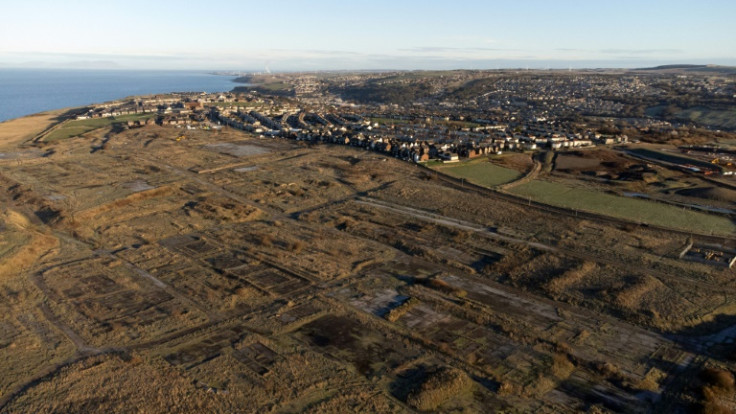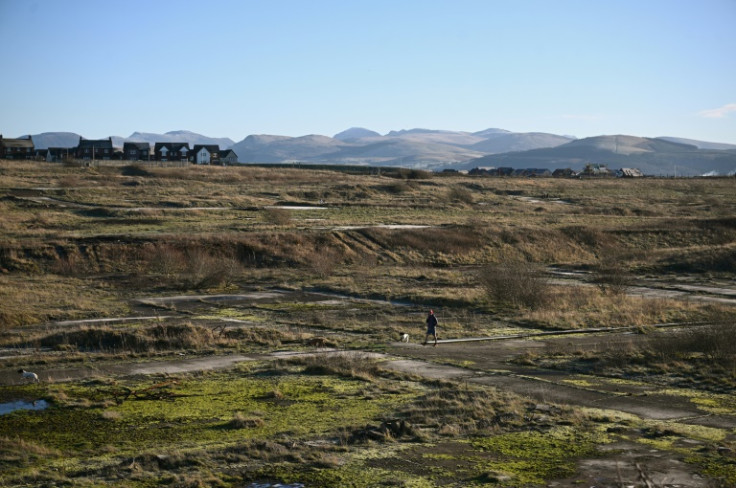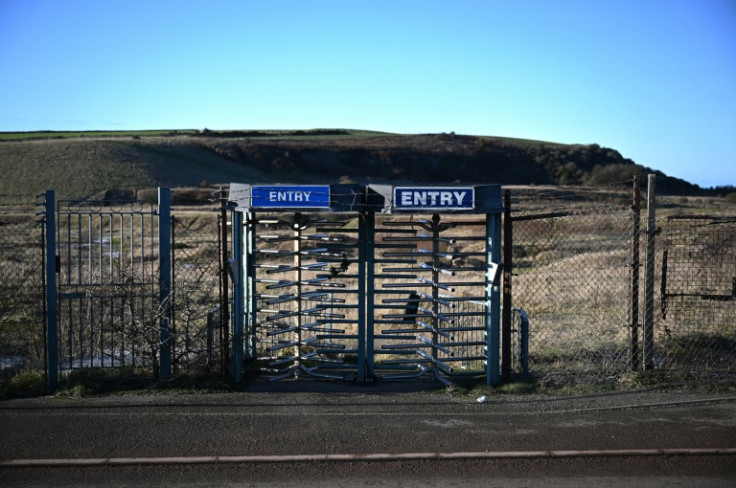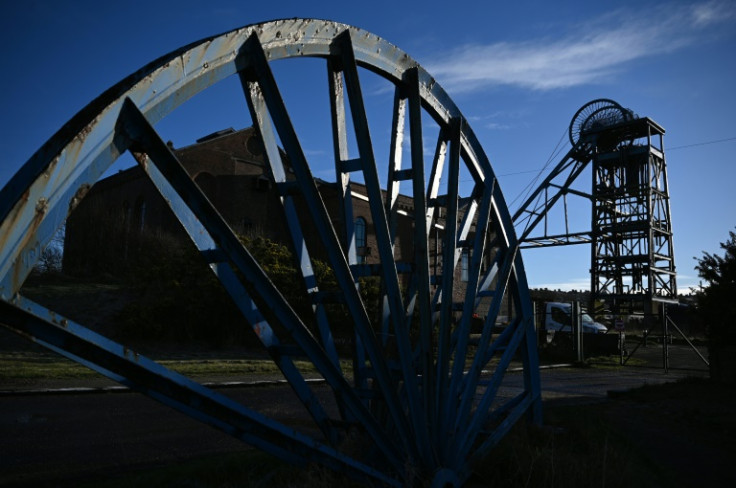UK Mine Plan Pits Enthusiasts Against Environmentalists

In the 37 years since the last coal pit closed in Whitehaven, the once-proud mining town on northwest England's remote Cumbrian coast has hit on hard times.
Vacant premises litter the main shopping street. Jobs are hard to come by, locals say, with a recently decommissioned nuclear power plant nearby the only big regional employer.
Now, plans to open the country's first new mine in decades there promise economic regeneration, and both Britain and Europe with a supposedly "greener" source of coking coal, used for steelmaking.
But with the UK and EU bidding to become carbon neutral by mid-century, the project is highly contentious, pitting enthusiastic backers in Cumbria and beyond against environmentalists.
"I'm all for it -- not just for here, for the whole country. We're too dependent on others, look where we are energy-wise... we're vulnerable," said Martin Branney, 50, a health and safety specialist.
"We need to explore everything we can, we can't just poo-poo it," he added, walking his dogs above the proposed new pits just south of Whitehaven.
However, eco-conscious locals are vehemently opposed.
"I think with the state of the planet we do not want another coal mine," said retired civil servant Peggy Robinson.
Jean McKendry, 72, added there was "no justification" for it given climate change, predicting "common sense will prevail".
The UK government approved the Woodhouse Colliery venture in December, after regional officials signed off in 2020.
Friends of the Earth and another pressure group are challenging in court the decision-making process, but detractors say their chances are slim.
In the meantime, West Cumbria Mining (WCM), the company behind the endeavour, can start clearance work next month ahead of construction in September.
It aims to be operational by 2025, and produce nearly 3 million tonnes of metallurgical coal annually -- used solely for steelmaking -- for a quarter-century.
The firm claims it will operate a "world-leading, legally-binding emissions mitigation scheme", aligned with Britain's net-zero commitments.
That will include an all-electric underground mining fleet, methane capture and carbon offsets.
But critics, including climate activist Greta Thunberg, are unimpressed, with the 20-year-old tweeting in 2021 that the UK government's refusal to block the mine meant its 2050 zero emissions targets "basically mean nothing".
Opponents point, among other things, to research by the Green Alliance think tank published last month that found it will release 17,500 tonnes of methane annually.
The NGO argues the venture will "undermine the UK's climate leadership" and that British steelmakers won't use the coal -- something WCM labels a "myth".
However, the firm's UK market is narrowing. British Steel announced last week it will shutter its coking ovens in Scunthorpe, leaving Tata Steel in south Wales as the only remaining domestic furnaces.
Meanwhile, industry experts note Whitehaven's deposits have a relatively high sulphur content, requiring British steelmakers to mix it with higher quality coals.
WCM acknowledges it will also export to Europe, claiming that is "still far more environmentally responsible" than shipping metallurgical coal from the EU's current suppliers on other continents.
Whitehaven's Conservative mayor Mike Starkie, a self-proclaimed supporter of the project since "day one" of taking office in 2015, argues it will aid the net-zero transition.
Like WCM, he dismisses fledgling "green" steelmaking techniques using hydrogen, insisting coking coal will be the essential ingredient for the foreseeable future.
"If you want a green industrial revolution... all of those (renewable technologies) take considerable amounts of steel," he told AFP from his harbour-side headquarters, over the squawks of seagulls.
Starkie envisages the mine will help reverse the decimation wrought on Whitehaven by the deindustrialisation of the 1980s.
"This is going to be such a huge boost to the economy and it's going to kickstart so many other opportunities for new businesses," he said, adding mining -- alongside rugby league -- are "woven into the culture here".
"There are very few families around the Whitehaven area that wouldn't have had somebody that's been down the pits, even though the last one closed nearly 40 years ago."
Lifelong resident Catherine Glaister, 53, recalled her miner father handing out bags of coal to needy neighbours when she was growing up.
"I think they should open it -- jobs!" she said of the Woodhouse Colliery.
"It would be good for the town... people are struggling," Glaister added, standing in its dilapidated centre.
Pancho Lewis, a researcher behind a "Climate Citizens" project at nearby Lancaster University, explained local sentiment towards the project was mixed and "complex".
"Coal is part of Whitehaven's history, and people have learnt from experience that when they are in operation mines can be relied on to provide jobs," he said.
"As long as 'green jobs' continue to be a promise that remain largely rhetorical instead of manifesting materially in people's lives, then support for fossil projects like the mine is likely to continue -- in Whitehaven and other areas."



© Copyright AFP 2024. All rights reserved.





















